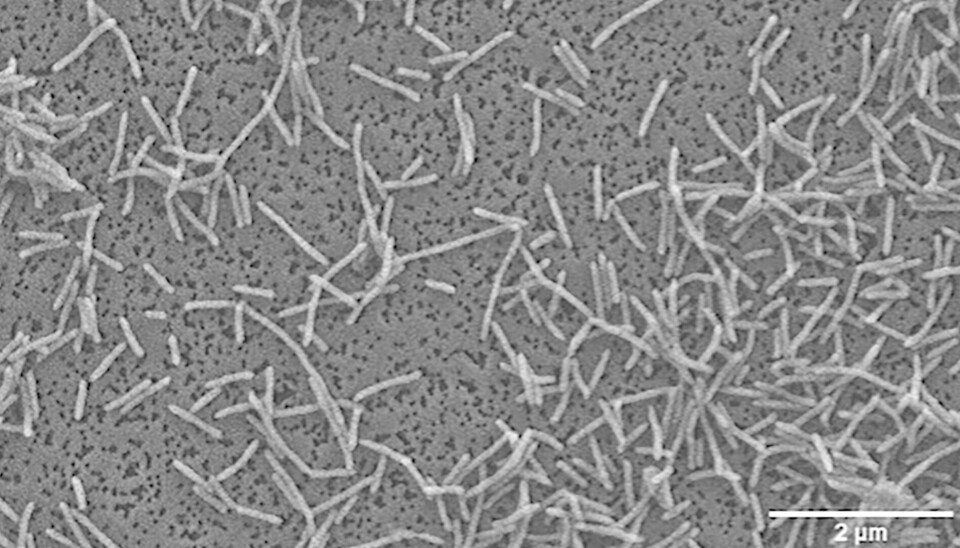
New species of Flavobacterium identified in Chilean fish farms
The new bacterium called Flavobacterium facile was isolated in November 2013 from water samples collected from a fish farm in the Maule Region. Its pathogenic role is unknown.
The genus Flavobacterium comprises 301 species that are widely distributed in aquatic systems and soils, the most well-known and important representative in Chilean salmon farming being F. psychrophilum.
In a recent study published, Chilean scientists isolated and characterized a new species of the genus which they named Flavobacterium facile (type strain T-12T). The new bacterium was isolated from water samples from an Atlantic salmon fry cultivation system in the Maule Region in 2013.
Experts from Andrés Bello University (Unab), Incar Center, and Bernardo O'Higgins University described that the microorganism develops colonies on Reasoner's 2A agar plates, orange, circular, with entire edges and shiny surface, and diameters ranging from 1 to 2 mm.
The cells and colonies are described as Gram-negative bacilli, measuring 0.6 µm in width and 1.9-5.7 µm in length after 48 h of incubation at 20 °C. The cells are non-motile, flexirubin-positive, and Congo red-negative. Catalase is positive, while oxidase is negative. Growth was observed on TYES agar, marine agar 2216, soybean casein digest agar, nutrient agar, and Reasoner's 2A agar. Gelatin hydrolysis was also observed.
The phylogenetic analysis based on 16S rRNA gene sequences revealed that the type strain has close relationships with F. bernardetii F-372T (99.48%) and F. terrigena DS-20T (98.50%), with a genome size of 3.28 Mb.
Dr. Ruben Avendaño, a scholar and researcher at Unab and the Incar Center, and one of the experts involved in this discovery, pointed out to Salmonexpert, media partner of LandbasedAQ, that this new bacterium was isolated from the water of fish ponds suffering from flavobacteriosis.
“The importance of this new species is related to the great diversity of flavobacteria that are within the cultivation systems and that we have not yet identified. Currently, we do not know if this new bacterium plays any role in the infection process by F. psychrophilum, in fact, the fish were suffering from flavobacteriosis. In future studies, we will determine the pathogenicity of this and other species of the genus in freshwater that we have also isolated as new species,” detailed Dr. Avendaño.
"Phenotypic, chemotaxonomic, and genomic data support the classification of strain T-12T as a representative of a new species of Flavobacterium, for which the name Flavobacterium facile is proposed," concluded the authors of the publication.
Read the full study titled "Flavobacterium facile sp. nov., isolated from water system of Atlantic salmon (Salmo salar) fry cultured in Chile", here.





















